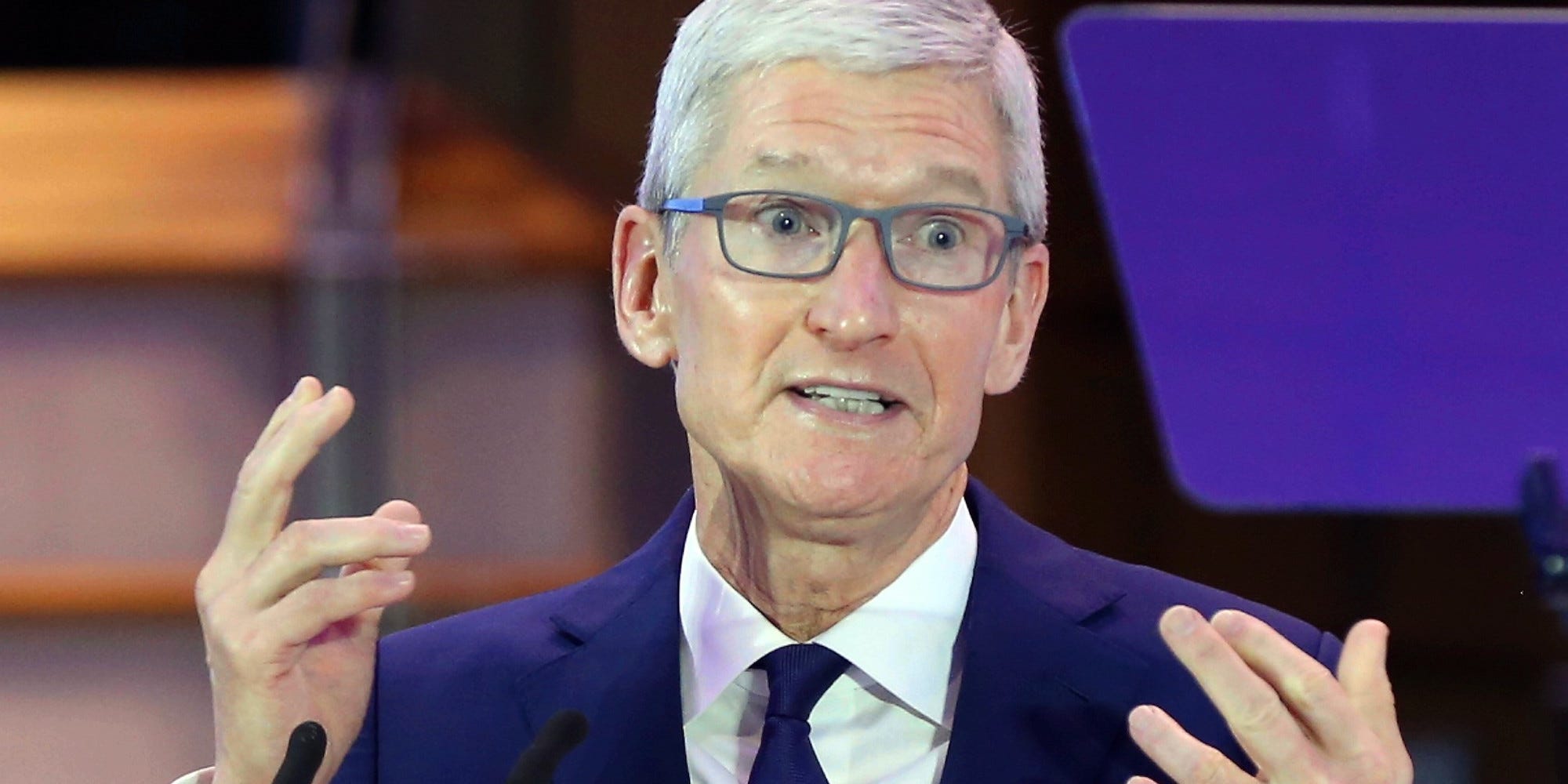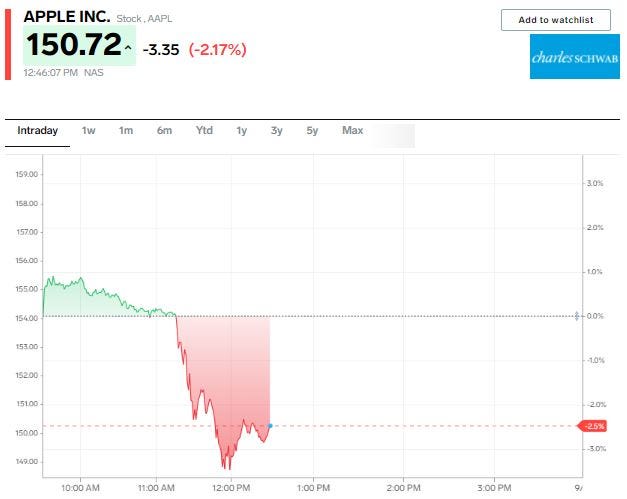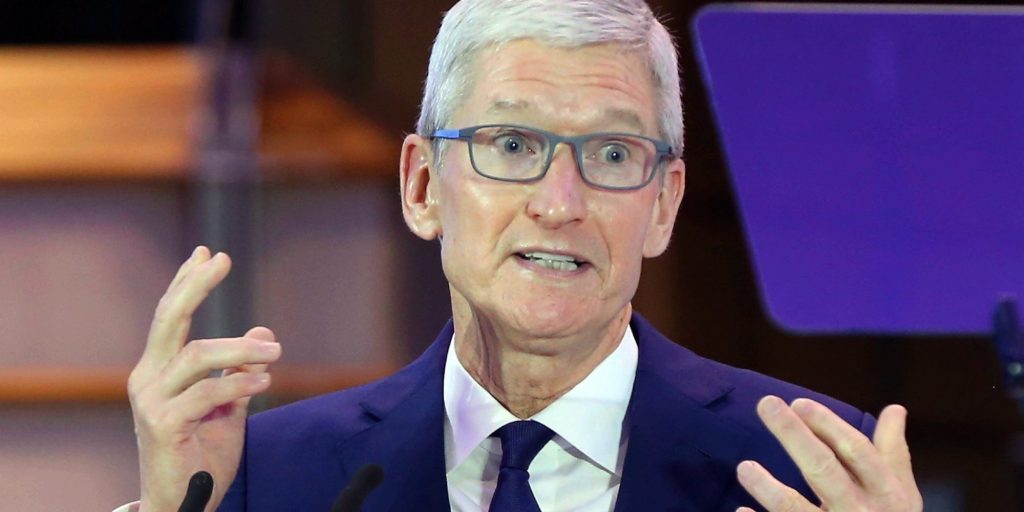
- A ruling in the Apple vs. Epic Games lawsuit sent shares of the iPhone maker down as much as 3% on Friday.
- The ruling said Apple must allow other forms of in-app purchases that would not be subject to a commission paid to the company.
- While shares of Apple fell, companies that rely on the app store to generate business surged, including Netflix, Spotify, and Roblox.
- Sign up here for our daily newsletter, 10 Things Before the Opening Bell.
Shares of Apple fell as much as 3% on Friday after a judge ruled that the iPhone maker must allow other forms of in-app purchases for app developers and their customers.
The ruling – which came in the Apple vs. Epic Games lawsuit – means Apple can't restrict app developers use of external links when directing customers to sign up for a service. Apple forced app developers to restrict sign-ups to within the app store, allowing the company to collect a percentage of the revenue generated from subscription signups and in-app purchases.
The ruling led to a Friday afternoon pop in shares of companies that rely on the app-store to generate business. Shares of Netflix, Spotify, Roblox, Bumble, and Match.com all popped following the ruling, with some shares up as much as 5%.
The ruling said Apple is "permanently restrained and enjoined from prohibiting developers from including in their apps and their metadata buttons, external links, or other calls to action that direct customers to purchasing mechanisms, in addition to In-App Purchasing and (ii) communicating with customers through points of contact obtained voluntarily from customers through account registration within the app."
But the ruling also favored Apple in some aspects, and the judge said that "the court cannot ultimately conclude that Apple is a monopolist under either federal or state antitrust laws." That could represent relief for some investors who are concerned about the ongoing anti-trust investigations into Apple.
Apple said in a statement: "As the Court recognized 'success is not illegal. Apple faces rigorous competition in every segment in which we do business, and we believe customers and developers choose us because our products and services are the best in the world."
The company plans to appeal the ruling. If the ruling does stand, Apple's revenue generated from its app store could fall significantly, as the company warned late last year.
The Apple vs. Epic lawsuit stems from Apple's decision in August of 2020 to remove the popular video game Fortnite from its app store after Epic developed its own in-app payment system to circumvent Apple's 30% commission rate.

